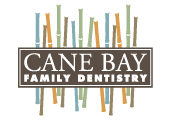Many people have not heard of the word “ptyalism.” However, it is a condition that is quite common among pregnant women. Ptyalism is the excess production of saliva. Even though this condition can occur in anyone, it is not unusual in women in their first trimester of pregnancy.
What Is Hypersalivation?
Ptyalism causes hypersalivation, which simply means excessive saliva. When excessive saliva gathers in your mouth, it can cause you to drool. In both children and adults, drooling is a sign of an underlying condition. However, this condition may be temporary, depending on the cause.
For example, if you have an oral infection, your salivary gland may produce more saliva to flush away the infection. Once the infection is eliminated, hypersalivation may stop.
However, if you experience continuous hypersalivation, it may be linked to an underlying condition affecting your motor control. These can be conditions like Parkinson’s disease in adults, cerebral palsy, and mental retardation in children.
Ptyalism And Pregnancy
Ptyalism mainly occurs in women who suffer from severe nausea and vomiting during pregnancy. Although its exact cause has not been determined, researchers believe that changes in hormones are a reason for that. Vomiting may also trigger excess saliva to reduce the burn in the mouth and esophagus.
In addition, women who suffer from morning sickness may avoid swallowing less so they may not trigger vomiting. This builds up the saliva in the mouth.
Treatment For Excess Saliva
There are simple tips you can follow to reduce the buildup of saliva in your mouth these include:
| • | Brushing your teeth: Brushing your teeth freshens your mouth, making it easier to swallow, and the buildup of saliva is reduced. |
| • | Drinking water: Taking small sips of water throughout the day can make it easier to swallow saliva without triggering nausea. |
| • | Avoiding starchy food: Pregnant women should avoid overeating starchy food like white bread. |
| • | Chewing Gum: Chewing sugarless gum may make it easy for you to swallow down saliva. |
If you are experiencing hypersalivation and want to understand more about the condition, you can talk to Cane Bay Family Dentistry. Call us today at (843) 352-4454 to schedule a consultation appointment.

